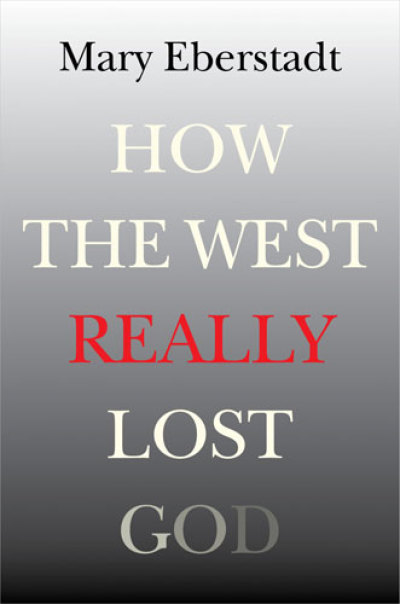Secularism Is Not Inevitable; Faith and Family the 'Double Helix of Society,' Says Researcher
As science and technology continue to improve, is the decline of religion inevitable? By no means, says researcher and author Mary Eberstadt.
In her new book How the West Really Lost God: A New Theory of Secularization, Eberstadt, research fellow at Stanford University's Hoover Institution, tests the traditional understanding of secularization, and finds them wanting. "The going theories have come up short," she said, addressing the Heritage Foundation Thursday.

"I think that secularization has been misunderstood as some kind of linear process driven by loss in the idea of god," she told The Christian Post in a Friday interview. "If my argument is correct, secularization is not inevitable."
The growth of unbelief is neither inevitable nor monolithic, she argues. In her view, "faith and family are the combined double helix of society." If the family gets stronger, the church will follow suit. On the other hand, "the obvious problems and declines in both institutions at the moment," pose a deep problem.
While culture and society seem to have gotten progressively less religious over the past 200 years, Eberstadt noted two periods of religious resurgence.
"In Victorian London, following a period of social dissolution in England," she said in the interview, there was "an example of a religious and family flowering," especially in the middle and upper classes.
"Then in the 1900s you have the postwar religious boom, marriage boom, and baby boom," she added. "It was unforeseen by the experts, it was pan-Western," and "it was so predominant in the United States that Sociologist Will Herberg said the village atheist and village agnostic were disappearing."
At the Heritage Foundation, she contradicted the claim that religion is the opiate of the masses. Faith actually declined faster among the lower classes. She quoted Charles Murray, a fellow at the American Enterprise Institute, saying, "the drift from Christianity was far greater in the working class town than in the richer one." Knowledge and prosperity do not cultivate unbelief, she claimed.
What actually led to the recent decline in both faith and family? Eberstadt pointed to the sexual revolution and the welfare state.
"The incentives to marriage are greatly diminished if one doesn't have to marry to have sex," she noted. "After 1973 we live in a world where birth is negotiable," with abortion a legal option in all 50 states. When nearly half of American first births are out of wedlock, even those who want to be mothers don't need to get married.
With families in decline, the state seems ever more willing to take up the slack. "The modern welfare state has tried to be a father substitute, a provider substitute," Eberstadt said. It has started to engage in "the kinds of things that families used to do."
She does not blame this on some anti-family, anti-religious plot – "it's not as if somebody thought this up for bad reasons."
Ironically, the monetary crises of the federal government may provide a reason for hope. "If the time comes when the modern welfare state as we know it is rethought or reined in or if it implodes in the fiscal tornado that it seems to be in, people will look to their more organic connections," she said.
If people can't rely on the government, "they will look to the family and the churches."
She sees home schooling as "a cultural response to the welfare state."
"The more ideological public education becomes – which seems to be the direction we've been moving in under this administration – the more it alienates people who don't want their children taught ideologies," she explained. This problem faces "traditional Christians who are marginalized by mainstream culture," she added.
She saw hope of resurgence in both family and faith. "In times of economic adversity, people look to their organic communities. In hard times, people go home."



























